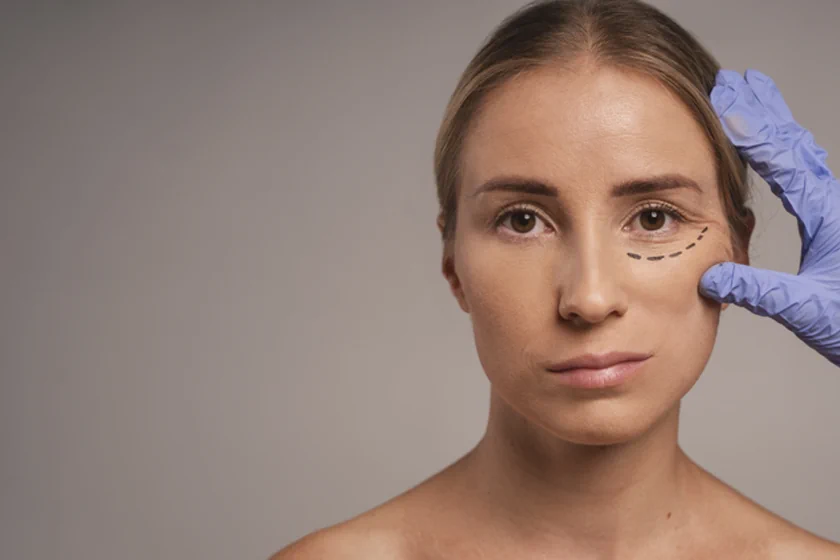|
Getting your Trinity Audio player ready...
|
Monsoons in India are nothing short of magical.
As the rain dances on the rooftops and the air fills with the earthy scent of petrichor, we all feel a sense of relief from the scorching summer heat.
But as much as we love the rains, our eyes might not share the same sentiment. The monsoon season brings a host of eye problems, from infections to irritation.
So, let’s dive into some fun and practical ways to protect your eyes during this enchanting season, with insights from Dr. Surbhi Kapadia, the best ophthalmologist in Vadodara.
General Tips for Taking Care of Your Eyes During Monsoon
Taking care of your eyes during the monsoon season isn’t rocket science, but it requires a little extra attention. Here are some simple yet effective tips:
- Maintain Hygiene: Always wash your hands before touching your eyes to prevent the transfer of germs.
- Avoid Sharing Personal Items: Items like towels, handkerchiefs, and makeup can carry bacteria and viruses.
- Stay Hydrated: Drink plenty of water to keep your eyes hydrated.
- Use Sunglasses: Wear sunglasses to protect your eyes from the wind and rain.
- Avoid Rubbing Your Eyes: If you feel irritation, use a clean tissue or cloth to dab gently instead of rubbing.
- Use Eye Drops: If you experience dryness or irritation, use preservative-free artificial tears.
- Consult an Ophthalmologist: Regular check-ups with an eye specialist can help in early detection and treatment of any eye problems.
Can Rainy Season Cause Eye Infections?
Absolutely!
The monsoon season can increase the risk of eye infections. The high humidity increases pollution, and the presence of bacteria and viruses in the water can lead to infections such as conjunctivitis, styes, and fungal infections.
According to a study, cases of conjunctivitis spike by 30% during the monsoon season in India.
This is why maintaining good eye hygiene and avoiding exposure to contaminated water is crucial.
Can Rain Affect the Eyes?
Rain itself doesn’t directly harm the eyes, but the conditions associated with monsoon can. The increased moisture in the air can lead to fungal infections, while dirty rainwater can cause bacterial infections if it enters the eyes.
Additionally, using contact lenses during monsoon can further increase the risk of infections if not properly managed.
In fact, a survey showed that 25% of contact lens wearers in urban India experienced eye infections during the rainy season.
7 Things You Should Do To Take Care of Your Eyes in Monsoon
- Wear Protective Eyewear: Use sunglasses or clear glasses to shield your eyes from rain and wind.
- Keep Your Eyes Clean: Rinse your eyes with clean water if you feel any discomfort.
- Use Lubricating Eye Drops: To prevent dryness caused by the humid weather.
- Eat a Healthy Diet: Include foods rich in Vitamin A and Omega-3 fatty acids to maintain good eye health.
- Stay Indoors During Heavy Rain: Avoid exposure to heavy rain, which can bring pollutants and bacteria.
- Maintain Contact Lens Hygiene: Follow proper cleaning protocols and avoid wearing lenses during heavy rain.
- Visit Your Eye Specialist Regularly: Regular check-ups with Dr. Surbhi Kapadia can help in the early detection of any issues.
7 Things You Should Avoid In Monsoon For Best Eye Health
- Avoid Touching Your Eyes: Especially with unwashed hands, to prevent the transfer of germs.
- Do Not Share Personal Items: Like towels and makeup, to avoid spreading infections.
- Avoid Using Expired Makeup: Old makeup can harbor bacteria that can cause eye infections.
- Do Not Ignore Eye Irritations: Seek medical advice if you experience persistent irritation or redness.
- Avoid Swimming in Contaminated Water: To prevent exposure to harmful bacteria and chemicals.
- Do Not Wear Contact Lenses in the Rain: This can increase the risk of infections.
- Avoid Dusty Environments: Dust can cause eye irritation and infections during the monsoon season.
Conclusion
The rainy season brings with it a high risk of eye infections, with over 50% of urban residents in India reporting eye problems during this time. To ensure your eyes stay healthy and infection-free, follow the tips outlined in this blog.
Regular check-ups with an eye specialist, like Dr. Surbhi Kapadia, the best ophthalmologist in Vadodara, can help in the early detection and treatment of any issues. Aadicura, the best eye hospital in Vadodara, offers top-notch care for all your eye health needs.
Stay vigilant, protect your eyes, and enjoy the monsoon season without any worries. With these tips and regular consultations with a trusted eye specialist, you can navigate through the rainy season with clear and healthy vision.
FAQs
Can I wear contact lenses during the monsoon season?
It's best to avoid wearing contact lenses during heavy rain to reduce the risk of infections. If you must wear them, ensure proper hygiene and avoid exposure to rainwater.
What should I do if rainwater enters my eyes?
Rinse your eyes with clean, distilled water or use lubricating eye drops to prevent any potential infections.
How can I protect my eyes from infections during the monsoon?
Maintain good hygiene, avoid touching your eyes, use protective eyewear, and consult an ophthalmologist for regular check-ups.
Are there any specific eye drops recommended for monsoon eye care?
Preservative-free artificial tears are generally recommended to keep your eyes moist and prevent dryness.
How often should I visit an eye specialist during the monsoon season?
It's advisable to have a check-up at the beginning of the season if you experience any symptoms like redness, irritation, or discharge
![]()







